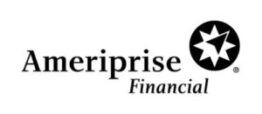Robert C. David Jr., of Farmington Hills, Michigan, a stockbroker registered with Morgan Stanley, has been fined $15,000.00 and suspended for 20 months from associating with any Financial Industry Regulatory Authority (FINRA) member in any capacity because David falsified customer information. Letter of Acceptance, Waiver, and Consent No. 2019062180701 (April 7, 2022).
On April 2, 2019, Morgan Stanley reported that they had terminated the stockbroker registration of David because he entered incorrect data about a customer’s information for bond transactions. There were also doubts by the firm about whether some transactions were properly approved in advance. A year later on April 29, 2020, Morgan Stanley reported to FINRA that a customer had filed a dispute alleging David had given false information about corporate bonds.
Between December of 2012 and September of 2018, David wrongly stated the net worth and liquid net worth of eight customers. He also modified the risk preference of one customer’s account in the company’s record-keeping system for investment accounts. In those years, Morgan Stanley’s management policies classified fixed-income securities into three categories according to credit risk levels. Fixed-income securities and non-investment grade securities were sorted into two of these categories.
Unless the customer met specific criteria for the security’s category, the company did not allow its employees to encourage buying of the fixed-income securities. And even if a customer were allowed to buy these securities, the company set certain limits on how many of these securities the customer could own. The company determined whether a customer could buy based on the customer’s liquid net worth, risk tolerance, and goals for investing. If a customer was not a fit for buying a certain fixed-income security, the customer would be disallowed from purchasing the securities.
The regulator found that David manipulated the net worth and liquid net worth of the eight customers, as well as the risk preference of one account, to bypass the company’s purchase limit and restrictions for the securities. By giving false data, David had the customers become eligible to buy non-investment grade, fixed-income securities, which they could not otherwise buy according to the company’s policies. As a result, David violated FINRA Rule 2010.
Also, by falsely increasing the net worth and liquid net worth of eight customers and changing the risk preference of one customer’s account in the company’s system, David caused the company to keep incorrect records. FINRA found that David violated Rules 2010 and 4511.
The AWC additionally noted that between February of 2015 and January of 2019, David advised three of his customers to invest a large part of their assets in securities rated Ba or lower by Moody’s Investor Service or BB or lower by Standard Poor’s. FINRA indicated that those securities carry a high level of risk, including default, and expose the customers to a considerable risk of losing their money. David unreasonably over-invested his customers in these risky securities, according to the regulator.
FINRA stated that Customer A, who had a moderate risk tolerance, a main goal of increasing capital, and a liquid net worth of $800,000, had his liquid net worth falsely increased to $1,100,000.00 in December of 2012 and $2,500,000.00 in December 2016 in the company’s system. Between February of 2015 and January of 2019, David made unsuitable recommendations of non-investment grade, fixed-income securities for the account of Customer A, resulting in between 43.80 and 63.15 percent of his liquid net worth being invested in these risky securities.
The regulator noted that Customer B, a retired couple with a moderate tolerance of risk and a liquid net worth of $2,300,000.00, had their liquid net worth falsely increased to $10,000,000.00 in December of 2016 and $15,000,000.00 in April of 2017 in the company’s system. Between December of 2016 and January of 2019, David recommended non-investment grade, fixed-income securities for Customer B’s joint account. FINRA found that between 32.72 and 47.78 percent of the customer’s liquid net worth was invested in these risky securities as a result.
Customer C, a moderate risk level investor with goals of increasing capital, and who had a liquid net worth of $750,000.00, had his liquid net worth falsely increased to $2,000,000.00 in April of 2013, $3,500,000.00 in June of 2015, and $5,000,000.00 in June of 2018 in the company’s system. From May of 2015 to September of 2018, David advised purchases of the riskier securities for Customer C’s account. This caused between 56.51 and 71.18 percent of the customer’s liquid net worth to be invested in these securities.
Therefore, David violated FINRA Rules 2111 and 2010.
FINRA additionally found that between January of 2015 and February of 2019, David used discretion to execute 538 trades in the accounts of eight customers without their written permission. Neither the customers nor Morgan Stanley authorized David to have this discretionary power. As a result, David violated FINRA Rule 2010 and NASD Rule 2510(b).
FINRA Public Disclosure shows that David was referenced in five customer initiated investment related disputes concerning David’s conduct while associated with securities broker dealers. On May 31, 2019, a customer filed an investment related complaint involving David’s conduct in which the customer requested $800,000.00 in damages based upon allegations that David engaged in unauthorized trading in mutual funds, stocks, and corporate bonds during the time that David was associated with Morgan Stanley Smith Barney. The securities broker dealer closed this complaint.
On March 14, 2020, a customer initiated investment related complaint involving David’s conduct was settled for $35,000.00 in damages based upon allegations that David made unsuitable recommendations of corporate bonds. David was also referenced in a customer initiated investment related FINRA securities arbitration claim that was settled for $200,000.00 in damages based upon allegations that David made unsuitable bond recommendations. FINRA Arbitration No. 19-01418 (April 21, 2020).
On December 17, 2020, a different customer initiated investment related complaint involving David’s conduct was settled for $60,000.00 in damages based upon allegations that David failed to follow instructions when David was associated with Morgan Stanley. David was also referenced in a customer initiated investment related FINRA securities arbitration claim that was settled for $85,000.00 in damages based upon allegations that David made misrepresentations of material fact in connection with the sale of corporate bonds during the time that David was associated with Morgan Stanley Smith Barney. FINRA Arbitration No. 20-01168 (April 28, 2021).
Inflating the customers’ net worth helps defend these claims.
David was associated with Morgan Stanley as a stockbroker from June 1, 2009, to April 2, 2019.








